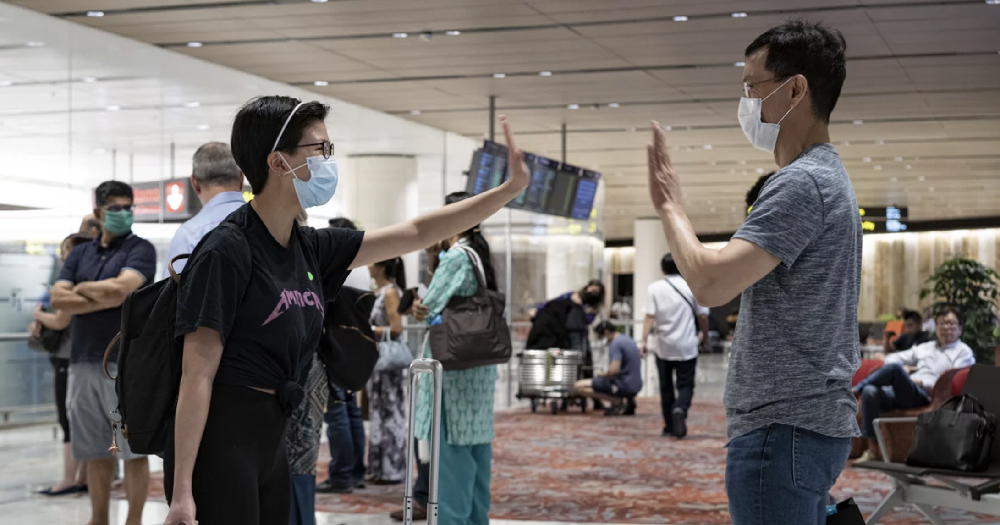Follow us on Telegram for the latest updates: https://t.me/mothershipsg
Singapore will be adjusting the quarantine period from 14 days to 10 days, the Ministry of Health announced on Friday, Sep. 10.
To be implemented from next week
This update to quarantine protocol takes into account the incubation period of the Delta variant, which has a shorter incubation period -- an average of under four days compared to an average of six days for the original strain, MOH said.
According to the ministry, this means that it will take an average of four days after exposure to the virus, for the virus to be detectable in the individual.
As such, MOH has decided to reduce the quarantine period from 14 days to 10 days from the date of last exposure, provided the person under quarantine tests negative for Covid-19 at the end of his quarantine.
He or she will need to continue to conduct daily ART after the quarantine period to Day 14 to mitigate any remaining risk of infection.
The changes apply to all close contacts of Covid-19 patients and their family members, Health Minister Ong Ye Kung said at a press conference on Sep. 10.
However, these do not apply for travellers as they come from various countries, and the ministry would want to be "cautious" about adjusting quarantine policies for this group of people, he added.
Shortening of quarantine days will be "less disruptive" to people
Ong, who's back in Singapore from a G20 Health Ministers' Meeting (HMM) in Rome, Italy, said that this update to quarantine protocol will be "less disruptive" to people, but at the same time, "capture a significant majority of infected cases".
The changes will be implemented from next week.
However, these updates will not apply to dormitory residents for now, given the "larger risk of transmission" due to their cohorted living arrangements, MOH said.
Follow and listen to our podcast here
Top image via Ore Huiying/Getty Images
If you like what you read, follow us on Facebook, Instagram, Twitter and Telegram to get the latest updates.
